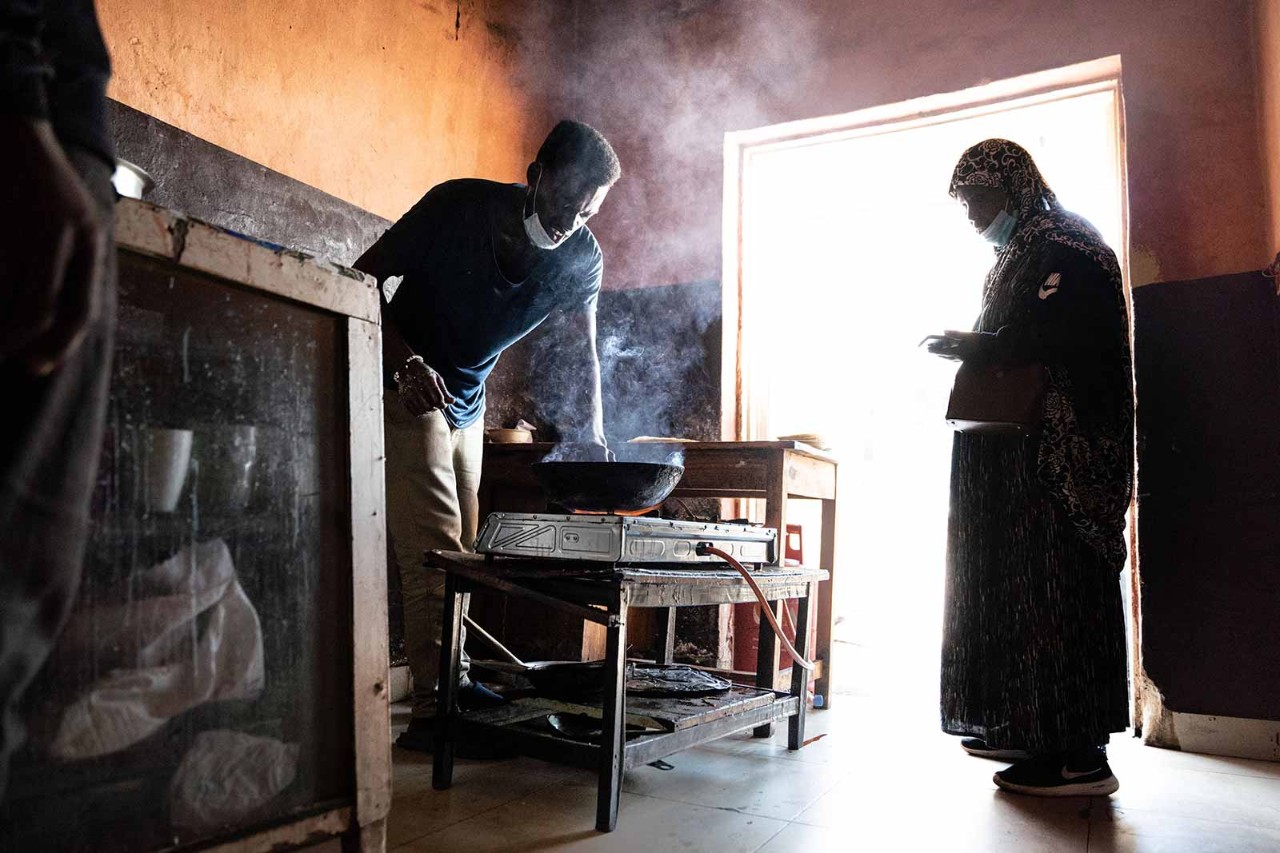
Having herself grown up some distance from the nearest town, Yvonne Soglo FCCA knows what life is like in South Africa's provinces.
She may have spent her early years on the opposite side of the country, but the director of provincial budget analysis at National Treasury – tasked with providing technical support in crafting the budget of Limpopo province and monitoring how the provincial government spends its money – says the issues are very much the same.
When Soglo spoke to Accounting and Business in March, Limpopo province had just tabled its R74.2bn budget. The challenge now, she says, is 'to make the money work harder. The country’s finances are constrained, so the conversation has to be around how we do more with what we have.
‘We allocate the money, but what happens to it then?' she asks. 'Monitoring and accountability management is what we need to do now.’
'The country’s finances are constrained so the conversation now is around how we do more with what we have'
Efficient approach
Key to the process of making the money work harder is identifying how services can become more efficient: 'For example, do we really need to be going through a third person to procure cabbage for a hospital when we can buy it directly from the farmer? Yes, we are trying to create jobs, but we need to work to the bigger picture of making a better life for everyone.’
Soglo, whose father was teacher and mother a seamstress, grew up in Qumbu village in the Eastern Cape, another poor, largely rural province. At high school, she decided on a career in accounting. She obtained her bachelor of commerce accounting degree from Rhodes University in 2006 and then, armed with a bursary from the Auditor-General of South Africa, pursued an honours accreditation from the University of KwaZulu-Natal in Durban.
But it wasn’t all plain sailing, she says. ‘I first attempted the Initial Test of Competence [for chartered accountancy studies] immediately after I graduated, but I did not make it.’
Undeterred, she researched other options in terms of internationally recognised qualifications.
'Financial expenditure does not necessarily translate to meeting non-financial performance'
‘The ACCA Qualification drew my interest because it allows you to work anywhere in the world, and the curriculum and subject options looked interesting,' Soglo says.
'I also liked the flexibility because at the time I was juggling building a career, studying and starting a family.'
Interesting environment
Soglo completed her training at the Office of the Auditor-General of South Africa. She concedes that while for many people the state is not an employer of choice, she found the environment interesting.
‘I got an understanding of the weaknesses when it comes to financial and non-financial information,' she says. 'One key thing that stood out is that even though funds have been spent, there may still be gaps in service delivery. This suggests that financial expenditure does not necessarily translate to meeting non-financial performance.’
Intrigued by what she saw, Soglo decided to join a department where she could ‘try and bring solutions to the challenges that I had seen raised by the auditor general’. She took up a role at the Eastern Cape provincial treasury, where she was responsible for crafting and monitoring the budget of the provincial health department.
She then took on another massive challenge, as director of budget management (infrastructure monitoring). ‘This was an eye-opener as I was confronted with real challenges, ranging from projects confirmed late by departments, service providers not performing, and poor quality of work,’ Soglo says.
After that, it was onwards to National Treasury in the administrative capital, Pretoria, to her current role, where she is part of a 24-member team comprised of directors for each province.
Times are tough for South Africa's governments both national and provincial, due to budget constraints and the economic impact of the pandemic. ‘Each day presents different challenges,' Soglo says. 'I could wake up thinking I will work on reports analysing provincial spending and budget pressure points, but then I might be roped into a meeting to deal with a specific challenge in any of the 12 provincial departments I assist.’
CV
2016
Director, intergovernmental relations (provincial budget analysis), National Treasury, Pretoria, South Africa
2015
Director, budget management (infrastructure monitoring), Eastern Cape Provincial Treasury, Bhisho
2013
Deputy director, budget management, Eastern Cape Provincial Treasury
2009
Assistant manager, Office of the Auditor-General South Africa, Pretoria
'Provinces are encouraged to identify inefficiencies and savings to be diverted to the areas where budgets may be under pressure'

Broad remit
Soglo's previous infrastructure monitoring role stood her in good stead; she travels regularly to the province to ‘see what the money is buying’ for departments as diverse as agriculture and education. Education, which consumes 49.1% of the province’s annual budget, was the sector worst hit by the pandemic; the lack of internet access and impossibility of ensuring social distancing due to high class numbers meant that many children could not learn remotely.
‘The rollout of e-learning is an area which still needs attention, and there is a plan to address connectivity challenges,’ she notes.
The Department of Health has also made some good progress in trying to reduce its accruals and improve governance. 'The province had a well-thought-out response to Covid-19 and as a result the numbers were manageable and we did not run out of hospital beds,' Soglo says, adding that Limpopo's vaccine rollout strategy, which operated from tribal council offices, community halls and malls, was adopted as good practice by other provinces.
'When you are in the public sector, there are competing pressures. It is important to stand your ground'
Problem-solver
But when delivery doesn’t match the cost of a project, Soglo has to recommend remedial action, which could involve terminating the service provider’s contract or holding individual state employees to account for non-performance.
Besides monitoring Limpopo’s budget, Soglo is a national project leader responsible for ensuring that all South Africa's provincial government departments pay what they should to municipalities. She is also responsible for overseeing the budgets of all provincial legislatures and providing budget support on the composition of budgets of traditional leaders in provinces.
In addition, she leads the benchmark planning process which looks at all nine provinces and how they have budgeted over the medium term expenditure framework to ensure that policy priorities have been budgeted for and budgets grow adequately.
Soft skills
She credits her ACCA Qualification for providing her with the skills to handle these wide-ranging tasks. ‘The ethics module is something that has stood out for me because when you are in the public sector, there are competing pressures. It is important to stand your ground,’ she says.
Because her job entails frequent engagement with heads of provincial departments and their CFOs, Soglo says she regularly calls on soft skills such as leadership skills, teamwork, flexibility, negotiation skills and the ability to convey a message and gain buy-in.
‘One thing that definitely stands out in terms of the ACCA Qualification is the focus on soft skills, which includes being creative, having emotional intelligence, having a vision and being forward thinking,' she says. 'These skills are fundamental in the public sector, alongside the core technical skills, and I'm grateful to ACCA for promoting them.’
South Africa’s National Treasury
South Africa’s National Treasury manages the country’s finances, working with Cabinet to draw up the country's budget. Treasury distributes resources, promotes the government’s fiscal policy framework, monitors procurement, is responsible for debt management, monitors intergovernmental financial relations and coordinates macroeconomic policy. It also helps to implement financial controls in municipalities and conducts economic research to devise plans to promote economic growth.




